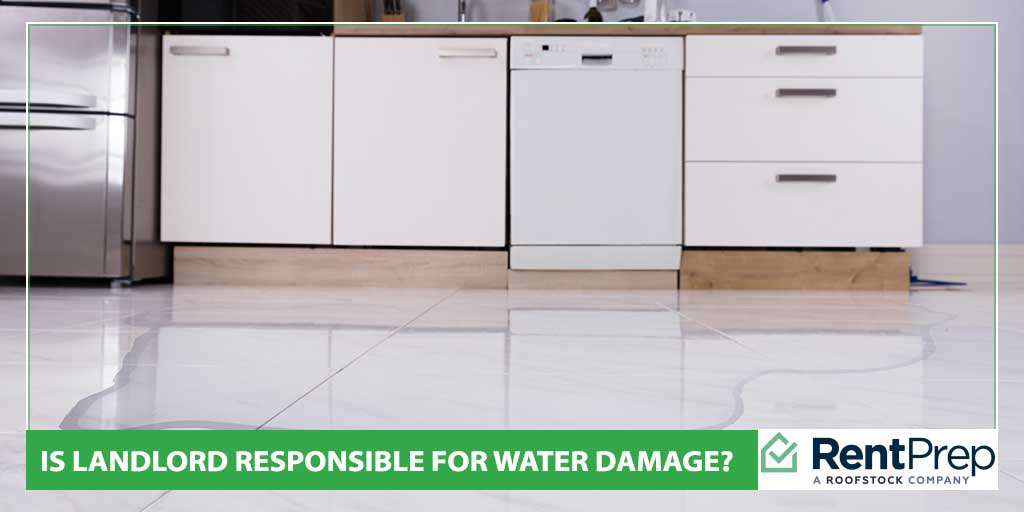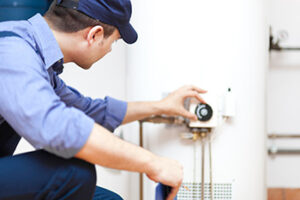
The two most damaging things to a rental property are fire and water. When it comes to fire, there’s not much you’ll be able to do on your own when you get a tenant’s panicked phone call. Call emergency services right away. However, your quick action may minimize the harmful effects of a water emergency to tenants and to property.
Common Water Emergencies
By and large, preventive maintenance to your rental property’s plumbing system will keep pipes and valves in great condition for quite a while. It will also permit you to spot issues and problems early on and have them taken care of before they rise to a full crisis. Here are 3 of the most common water emergencies that landlords and homeowners experience.
1. Leaking fixtures. This emergency occurs when a fixture like a faucet leaks water even when the device is supposedly closed or turned off.
2. Blocked drains. Whether it’s a sink or a toilet, a blocked drain can cause water to back up and prevent it from leaving the residence.
3. Burst pipes. While this is more likely to happen when pipes get frozen, it can happen any time of year.
When your tenant notifies you of any of these conditions, anything you can do to stop further damage until a professional plumber can make it reduces the damage to the rental property.
Landlord Steps for a Water Emergency

It’s important for landlords to educate themselves on what to do in a water emergency before it even happens. There’s no time to google a solution to a burst pipe or blocked drain when every minute counts, so take the time to get familiar with the steps you need to take for your rental property in the event that any of these water emergencies actually happen.
1. When you have water entering your rental property via a leak, blocked drain or other method, the first step is to turn off the main water valve. This action stops water from entering the property, thereby eliminating even more water damage. Note that many fixtures have cut-off valves that you can go to first.
2. Open up a faucet somewhere, like a first floor bathroom sink, to drain all the water out of the plumbing system. This should stop water from leaking out through the broken, pipe, fixture or appliance.
3. Now that the water is stopped, focus on getting as much water cleaned up as you can. Remove what excess water you can using a wet vacuum, towels and fans. The sooner the area can get dry, the less water damage will affect your property. Leaving an area extremely wet can contribute to floor or wall waviness and or mold growth.
4. Schedule the plumber to come as soon as possible to take care of the problem. Make sure you give a complete and accurate description of the problem and what you’ve done about it so far.
5. Work with the tenant on whether the unit is habitable for the short-term or long-term.
If you can educate yourself on these steps before a water emergency, you’ll be that much further ahead when something does happen. For example, know where the main water valve is and how to shut it off.
If you are really lost about the steps to take with your own property, consider hiring a plumber for an hour to meet you at the property and show you all the key shutoff valves and more. It will be an investment in your education that will be well worth it.
Is landlord responsible for water damage?
A landlord is responsible for providing a habitable rental property, and by law this means there must be a working toilet, hot and cold running water and a tub or shower, among other necessities. When there is a plumbing issue that requires the water to be shut off or the subsequent leak forces a tenant out of the home for a night or even a few days, it can lead to conflict about habitability.
For example, if a blocked drain renders a rental property’s only toilet unusable, and the plumber won’t be able to get out to the property until the next day, who is responsible for providing the tenant with an alternative place to stay. Depending on the state, landlords are generally supposed to provide either a discount on rent for displaced nights, or cover all or some of the cost of a hotel for the duration. Many landlords set out their responsibilities in these kinds of situations in the lease agreement and review this with the tenant before anything ever happens.
It Pays to be Prepared
The more you know about water emergencies the better off you will be when you get that panicked phone call from your tenant at 2 a.m. that there is water in a place it shouldn’t be. That’s why it’s important to know what you need to do before the actual emergency. When a water emergency does happen, making those first, early efforts to stop the flow and start drying things out, will most likely lead to less damage to the property.
What have you done personally to prepare for the inevitable water emergency? Please share this article and let us know your strategies in the comments section below.
FAQs around landlords and water emergencies
How long can a landlord shut off water for repairs?
This will depend on the situation because there’s a difference between a landlord dragging their feet on a simple repair (leaky toilet) versus a complex emergency where a pipe has burst inside of the wall. Remedying the emergency is important and the landlord should be in constant communication with the tenant about expectations.

